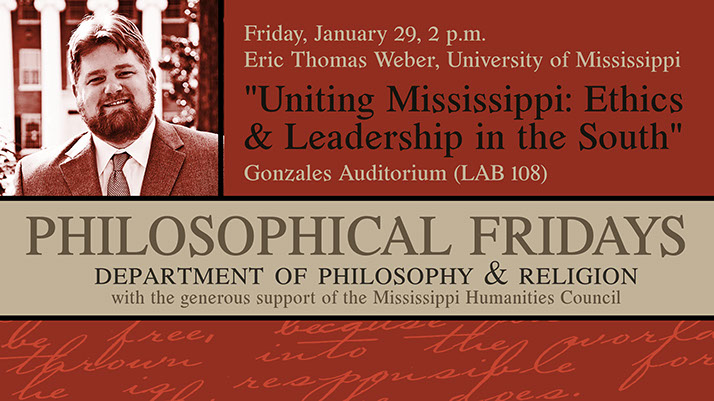The five-page article, Informing or Engaging: What Is the Role of Higher Education in Strengthening Public Life?, by Derek W. M. Barker was published Fall 2015 in Kettering Foundation‘s annual newsletter, “Connections 2015 – Our History: Journeys in KF Research”. Barker discusses how Kettering’s work over the last 20 years has explored the role of higher education and democratic citizenry. Kettering recognized the need for improved democratic processes to address the public’s deep frustration toward politics in this country and created a network of colleges to experiment deliberative practices within higher education. Below is an excerpt from the article. Connections 2015 is available for free PDF download on Kettering’s site here.
From the article…
 Higher education is a key institution in our democracy, charged with shaping the next generation of our citizenry. From Kettering’s perspective, future citizens need more than information if they are to be effective actors in public life. They need to be able to come together with other citizens—across partisan divides—and make a difference in their communities. However, a key challenge underlying Kettering’s research is how higher education views its civic role. That is, as these institutions have evolved, rather than an engaged citizenry, they have in most cases narrowed their role to developing an informed citizenry. To address this challenge, over time Kettering has developed a small network of college campuses that are experimenting with deliberative approaches to civic education and public forms of scholarship that integrate the civic aspirations of academics into their professional work.
Higher education is a key institution in our democracy, charged with shaping the next generation of our citizenry. From Kettering’s perspective, future citizens need more than information if they are to be effective actors in public life. They need to be able to come together with other citizens—across partisan divides—and make a difference in their communities. However, a key challenge underlying Kettering’s research is how higher education views its civic role. That is, as these institutions have evolved, rather than an engaged citizenry, they have in most cases narrowed their role to developing an informed citizenry. To address this challenge, over time Kettering has developed a small network of college campuses that are experimenting with deliberative approaches to civic education and public forms of scholarship that integrate the civic aspirations of academics into their professional work.
Kettering’s research on higher education, of course, was part of the foundation’s shift from technical innovation to democracy and citizenship. At the beginning of this shift, the foundation faced a critical puzzle. The dominant narrative was that the public was apathetic and uninterested in politics. Low rates of voter turnout and opinion data on attitudes toward government reinforced this view. There seemed to be no demand for the type of democracy that Kettering saw as increasingly necessary to address our nation’s problems. A key insight helped shape Kettering’s research agenda for the next 20 years: perhaps what appeared as apathy and disinterest was in fact a deep sense of frustration and alienation. While the public may be disgusted with politics-as-usual, perhaps citizens could be reenergized by a different kind of politics worthy of their time and attention. Indeed, researchers in Kettering’s network found evidence for this hypothesis in a series of focus group reports of public attitudes toward politics. Following the landmark Citizens and Politics: A View from Main Street America study of the public-at-large published in 1991, the Harwood Institute found this phenomenon to be especially true of students in the 1993 study, College Students Talk Politics. While frustrated with politics-as-usual, college students were enthusiastic about working together in their communities and engaging in public discourse across partisan divides. As David Mathews wrote in his foreword to College Students Talk Politics, “This study found that students have retained a remarkable ‘instinct’ for democratic practice; there is a buried civic consciousness in students.”
Sparked by the idea that people had a latent potential for civic awakening, Kettering began thinking about the possibilities for higher education to provide the sorts of experiences that students seemed to want. The foundation became aware of the larger possibilities for higher education’s civic role by looking historically at the major movements in higher education, from the liberal arts colleges of the founding era, to land-grant and minority serving institutions founded after the Civil War, and community colleges in the 1950s. In “The Public and Its Colleges,” an article that appeared in the 1998 issue of the Higher Education Exchange, Claire Snyder-Hall observed that, in each case, the colleges evolved in the context of larger civic movements. They were responding to particular groups, each demanding not only technical knowledge or vocational training but also education as full participants in our democracy. Although it seems strange to speak in this way now, at the most transformative moments in its history, higher education has been itself a civic movement.
Stirrings within the Academy
While Kettering was just beginning to focus its attention on higher education in the 1990s, within the academy interest in civic engagement was also beginning to take shape. A consensus emerged that universities seemed to have narrowed their vision and lost their way. Based on interviews with faculty at the University of Minnesota, Harry Boyte observed a widespread disenchantment among academics with their disconnection from public life—even among academics who joined the profession with hopes of their ideas contributing to social change. Academics began talking once again about civic education and their democratic role. In 1999, a “civic movement” was formally declared with a document now known as the Wingspread Declaration, in which a group of college presidents committed to an expansive vision of an informed and engaged citizenry. By the turn of the millennium, nearly every campus had courses and offices devoted to civic engagement.
Although something was stirring in higher education, from Kettering’s point of view, what it actually meant for democracy had yet to be determined. Would this civic movement aim to educate students in their civic capacities, to participate in politics and public life, to negotiate conflict and work together across their differences? Or would it teach students to make a difference by using their knowledge as individuals through direct service? Arguably, both goals represent coherent and complementary visions for higher education and its civic mission. Indeed, during the formation of the civic movement in higher education, both visions were part of the conversation. However, Kettering realized the civic engagement movement had become more focused on the application of expert knowledge rather than the relational norms and habits needed to revamp our politics; in the categories of the philosopher Jürgen Habermas, it had prioritized instrumental reason over communicative rationality.
The civic education of college students, while much improved, has mostly emphasized individual community-service experiences. As Rick Battistoni, himself a proponent and practitioner of service learning, has argued in the 2014 issue of the Higher Education Exchange, such efforts are “a mile wide and an inch deep.” By emphasizing such programs, higher education sends students the signal that individual service is a more satisfying and direct way of making a difference than working through politics and public life. Students are taught to see communities as recipients of their expertise rather than ecosystems rich with their own civic assets. More than ever before, represent coherent and complementary visions for higher education and its civic mission. Indeed, during the formation of the civic movement in higher education, both visions were part of the conversation. However, Kettering realized the civic engagement movement had become more focused on the application of expert knowledge rather than the relational norms and habits needed to revamp our politics; in the categories of the philosopher Jürgen Habermas, it had prioritized instrumental reason over communicative rationality. The civic education of college students, while much improved, has mostly emphasized individual community-service experiences. As Rick Battistoni, himself a proponent and practitioner of service learning, has argued in the 2014 issue of the Higher Education Exchange, such efforts are “a mile wide and an inch deep.” By emphasizing such programs, higher education sends students the signal that individual service is a more satisfying and direct way of making a difference than working through politics and public life. Students are taught to see communities as recipients of their expertise rather than ecosystems rich with their own civic assets. More than ever before, students have opportunities to apply their knowledge in community contexts, but higher education seems to have reached its limit when it comes to educating their civic skills and capacities.
Similarly, academics in outreach and extension fields are talking about civic engagement more than ever before. However, what they mean by civic engagement remains unclear. Again, the dissemination of expert knowledge brings academics into communities and constitutes an important part of their civic mission. But might they also see a role for themselves in strengthening the civic capacities of communities? Reflecting on a series of research exchanges with cooperative extension and outreach professionals, David Mathews’ Ships Passing in the Night? posited a fundamental disconnect between the role of the university in disseminating technical knowledge and communities’ needs to come together to solve their own problems. Similarly, a recent study by Ted Alter, based on interviews at Penn State University, found that most faculty saw their civic role in terms of disseminating and applying their expert knowledge, while only a few saw themselves as strengthening civic life or addressing controversial issues…
If our goal is for the citizenry to be not merely informed, but also active and deliberative, what is the role of higher education? Reflecting upon 20 years of research on higher education, this is the question to which we have come.
About Kettering Foundation and Connections
 The Kettering Foundation is a nonprofit operating foundation rooted in the American tradition of cooperative research. Kettering’s primary research question is, what does it take to make democracy work as it should? Kettering’s research is distinctive because it is conducted from the perspective of citizens and focuses on what people can do collectively to address problems affecting their lives, their communities, and their nation.
The Kettering Foundation is a nonprofit operating foundation rooted in the American tradition of cooperative research. Kettering’s primary research question is, what does it take to make democracy work as it should? Kettering’s research is distinctive because it is conducted from the perspective of citizens and focuses on what people can do collectively to address problems affecting their lives, their communities, and their nation.
Each issue of this annual newsletter focuses on a particular area of Kettering’s research. The 2015 issue, edited by Kettering program officer Melinda Gilmore and director of communications David Holwerk, focuses on our yearlong review of Kettering’s research over time.
Follow on Twitter: @KetteringFdn
Resource Link: www.kettering.org/sites/default/files/periodical-article/Barker_2015.pdf











![Offensive children's book, "Ten Little [N-word] Boys"](http://ericthomasweber.org/wp-content/uploads/sites/30/2015/12/TLNB-Cover.jpg)









